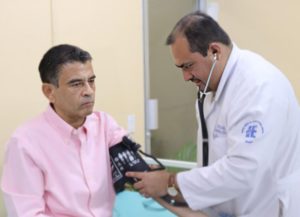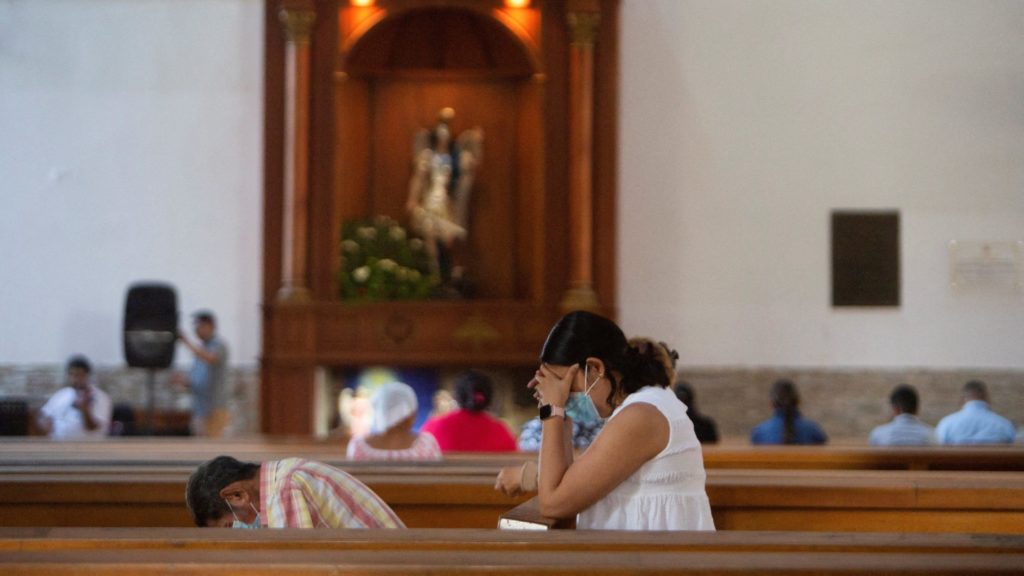ROME — Following the arrests of a second bishop and several priests, the U.S. State Department has once again included Nicaragua in its list of “Countries of Particular Concern.”
In a statement released Jan. 4, U.S. Secretary of State Antony J. Blinken said the countries on the list “engaged in or tolerated particularly severe violations of religious freedom.”
“Governments must end abuses such as attacks on members of religious minority communities and their places of worship, communal violence, and lengthy imprisonment for peaceful expression, transnational repression, and calls to violence against religious communities, among other violations that occur in too many places around the world,” Blinken said.
According to the Reuters news agency, Nicaraguan police arrested four priests — Msgr. Miguel Mantica, and Fathers Mikel Monterrey, Gerardo Rodriguez, and Raul Zamora — in their homes Dec. 30.
Their arrest, along with the Dec. 21 arrest of Bishop Isidoro Mora of Siuna, were made after they publicly expressed support for Bishop Rolando José Álvarez of Matagalpa, who was handed a 26-year prison sentence for his public opposition to the government of President Daniel Ortega and his wife, Vice President Rosario Murillo.
In a Jan. 5 op-ed published in the Spanish newspaper El Pais, U.S. Ambassador-at-Large for International Religious Freedom, Rashad Hussain, said the Ortega government’s “heavy hand extends beyond the Catholic Church” and evangelical communities have “faced similar wrath.”
He also expressed the United States’ commitment in helping “Nicaraguans as they work to (re)gain protection of and respect for their human rights and fundamental freedoms, and to reaffirm their democracy.”
Nicaraguans, Hussain said, “deserve full restoration of their freedoms, and Bishop Álvarez deserves the opportunity to resume his ministry.”
A senior state department official told Angelus that U.S. officials are figuring out how best to mitigate the government’s suppression of religious freedom.
Blinken’s statement was released the same day the United States Commission on International Religious Freedom (USCIRF) expressed its “outrage” over the “brutal crackdown on members of the Catholic Church.”
“It has become increasingly clear that President Daniel Ortega and Vice President Rosario Murillo are intent on silencing the voice of any individual peacefully following the dictates of their conscience,” said USCIRF Vice Chair Fredrick A. Davie.
The USCIRF also condemned the Dec. 24 sentencing of six former Caritas employees in the country “to six years imprisonment on dubious money laundering charges.”
USCIRF Commissioner Frank Wolf called on Congress to hold Ortega’s government responsible by passing the “Restoring Sovereignty and Human Rights in Nicaragua Act of 2023,” a bill that would impose sanctions against Ortega’s government.
The bill cited Ortega’s persecution of the Catholic Church, the arrest and torture of citizens, and expressed concern over his support of Russia and its invasion of Ukraine, which “poses a significant threat to global peace and stability in the Western Hemisphere.”
Florida Republican Sen. Marco Rubio, who introduced the bill to Congress in June, also wrote a letter to Pope Francis Dec. 13 urging him to call for Álvarez’s release, citing recently revealed evidence “that strongly suggest that Bishop Álvarez has endured torture at the hands of the Ortega regime.”
The Nicaraguan government released images of Álvarez receiving a medical examination in an apparent attempt to counter reports of the prelate’s mistreatment while incarcerated.

Nevertheless, the images caused concern for the health of the bishop, who seemed much thinner dressed in a pink shirt and gray slacks.
Father Edwing Román, a Nicaraguan priest residing in Florida who fled following threats against his life, tweeted that the government, which he called a “Sandinista dictatorship,” was flaunting the “physical deterioration” of the “unjustly condemned” bishop.
He also condemned the arrests of Bishop Mora and the clergymen, exclaiming “¡Libertad!” (“Freedom!”)
Auxiliary Bishop Silvio José Báez of Managua, who was exiled to the United States, also took to X (formerly known as Twitter) to condemn the Nicaraguan government for the “cynical and disrespectful” photos which he called an attempt at “cleaning up their crime.”
“Understand that no one believes you! The only just thing is for Bishop Álvarez to be freed, along with Bishop Mora, his seminarians, and the other priests,” Báez tweeted.
Báez, who also resides in Florida, visited Los Angeles over the weekend where he celebrated a Mass for the feast of Epiphany Jan. 6 at St. Vincent De Paul Church, along with Román.
In his Angelus address Jan. 1, Francis expressed “deep concern” for the Catholic Church in the country “where bishops and priests have been deprived of their freedom.”
“I also invite all of you present here, and all the people of God, to pray insistently; meanwhile I hope that we will always seek the path of dialogue to overcome difficulties. Let us pray for Nicaragua today,” the pope told pilgrims gathered in St. Peter’s Square.
In an interview with the Spanish-language news site Infobae in March 2023, the pope issued a much stronger condemnation, calling Ortega “unstable” and comparing the current government to “the communist dictatorship of 1917 or the Hitler dictatorship of 1935.”
Nicaraguans took to the streets in 2018 after the government announced changes to the nation’s social security system. The protests turned deadly as Ortega’s government sought to suppress growing calls for his ouster.
Since then, the Catholic Church in the country, which offered refuge in its parishes to protesters attacked by police and paramilitary groups, drew the president’s ire and led to a wave of arrests against clergy as well as the closure or exile of religious communities in the country.

